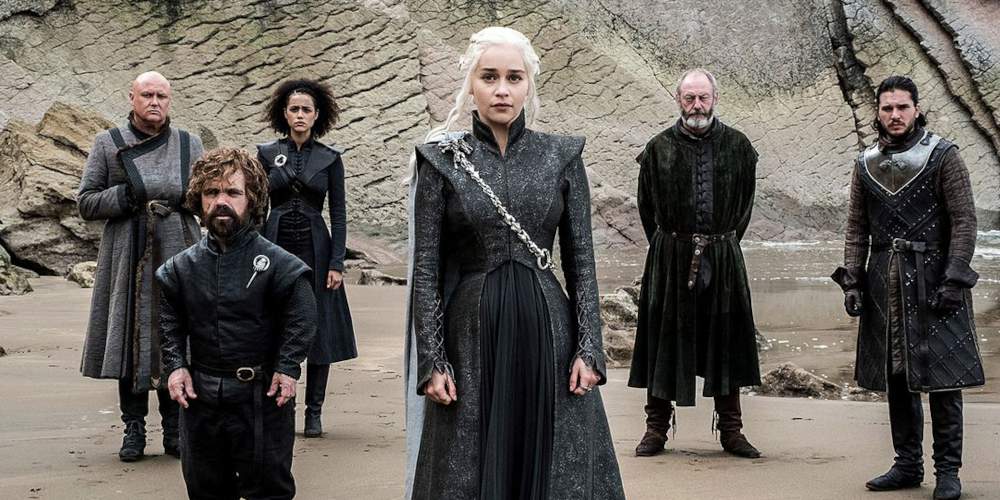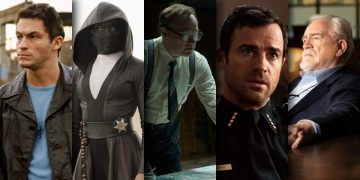Wrapping up HBO's hit series Game of Thrones was an unenviable task for showrunners David Benioff and D.B. Weiss.
Their television creation, taken so lovingly from George R. R. Martin's original books, became the biggest TV series the world had ever seen to that point. In the process, it launched several young actors' careers and established fantasy as a worthwhile genre in modern television.
However, with great power comes great responsibility—and Benioff and Weiss leveraged their work on the epic fantasy TV show to win big contracts with other companies who wanted similar success.
Once those contracts were secured, they shunted their responsibility to Game of Thrones off to the side and neglected the ending to Game of Thrones. Whatever bold vision and craft they'd brought to the series had fizzled away into mist by the time the final season aired.
The eighth season of Game of Thrones promised a grand finale that fans had been longing to see ever since the very first episode introduced us to the mysterious ice-zombies north of the Wall. That promise was—to put it kindly—not satisfyingly realized in any capacity.
The truncated six-episode season attempted to race through enough story to fill two or three entire seasons, and spectacularly fell under its own weight. Entire characters were twisted by unreasonable motivations, with many suddenly killed simply to serve a lazily written plot.
Game of Thrones ended with a whimper, not a triumph—and ever since that final season aired, the previous seasons of the show have proven challenging to rewatch. Here are the reasons why Game of Thrones' final season poisoned the entire series beyond watchability.
1. Squandered Foreshadowing
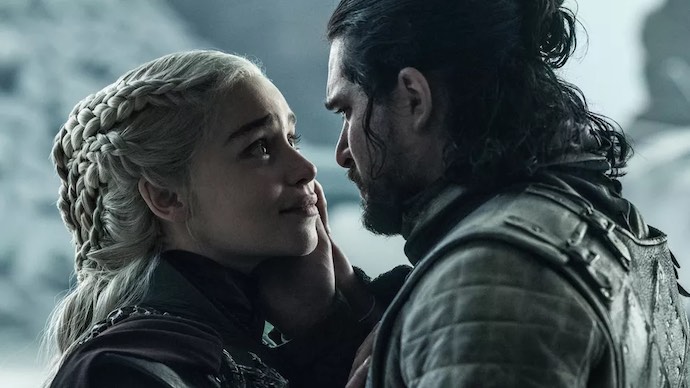
In dramatic writing, there's a principle called "Chekhov's Gun" named after acclaimed Russian writer Anton Chekhov:
"One must never place a loaded rifle on the stage if it isn't going to go off. It's wrong to make promises you don't mean to keep."
Anton Chekhov
In other words, if you're going to insert something into the story and draw a lot of attention to it, it must be relevant to the story at hand and play a significant role in the narrative going forward.
In Game of Thrones, this principle became a staple of the series as many plot points were started and emphasized long before they reached fruition. But in season eight? This principle seemingly vanished.
Case in point: the story drew attention to Daenerys' ability to bear children several times in previous seasons, and there was that moment when Jorah Mormont declined Jon Snow's offer of Longclaw and told him: "May it serve you well, and your children after you."
The implication is that Daenerys and Jon Snow would have children, and season eight seemed to move toward children that they would have together. Yet despite season eight's revelation about Jon and Daenerys' lineage, the couple's relationship fell away without any significance.
It's just one example where season-spanning foreshadowings were wasted by the final season, shoddily ignored and cast aside.
2. Absurd Character Arcs
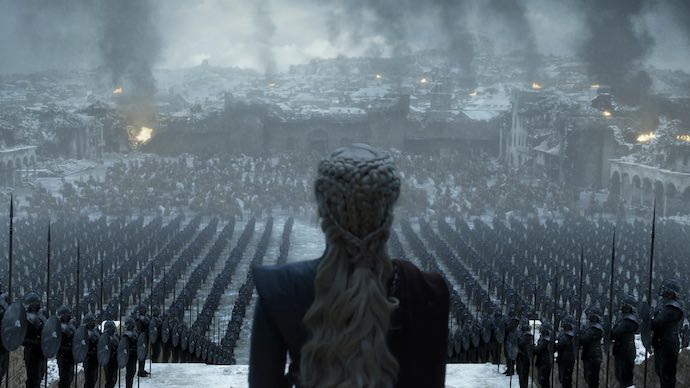
Game of Thrones began as a slow-burning push, with each character being one piece in a cosmic chess game, with each move carefully considered—right up to when that slow-burn policy vanished.
Season eight took the good-hearted Queen Daenerys from the series' beginnings and turned her into The Mad Queen within three episodes.
Now, there's nothing wrong with the idea of Daenerys turning into a dark and twisted character after she's tortured by loss and guilt. But that's a character arc that demands more than three episodes—more like three seasons. It's an absurdly paced character arc.
Daenerys' growing madness should have been woven through numerous episodes and increasingly tormented decisions, pushing her further and further down a dark path that she couldn't escape despite the efforts of her supporters around her.
Instead, Daenerys' personality flipped a 180 faster than Tony Hawk, simply so she could spearhead the destruction of King's Landing.
Unfortunately, this isn't isolated to the character of Daenerys. It was true of various other characters throughout the run of the final season—like Brienne, Jaime, Arya, Sansa, and countless others—and the resulting effect is that fans were yawning long before Jon killed Dany.
3. Rushed and Senseless Plot
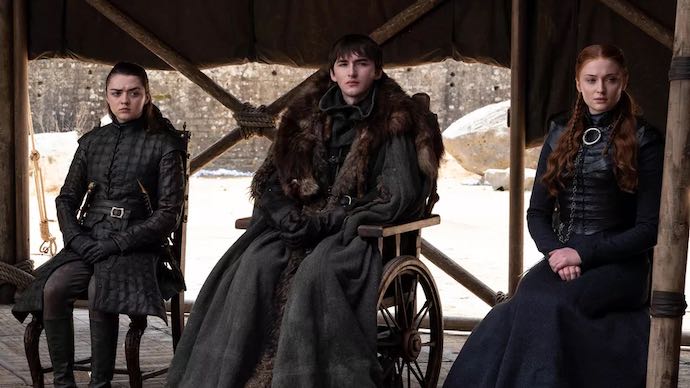
Watching the final season of the series, you get the feeling that Benioff and Weiss were sitting in the writer's room and sputtering out "That'll do" time and time again to half-baked plot suggestions.
The astounding lack of craft—and the lost essence of what the show used to be—took the wind right out of the show's sails. By the end of season eight, everything that had been shown as important in the first few seasons had descended into cliché and mindless clap-trap.
The demise of the White Walkers—while epic as a battle—was too brief. Production stories from cast and crew, who'd spent weeks shooting the battle, led audiences to think this would be the Helm's Deep of Game of Thrones. But it wasn't. It was lackluster and inconsequential.
The stakes were nonexistent as audiences knew neither Jon nor Dany could die—they still had much else to do. The entire sequence remains baffling for a series that had built up this world-ending threat from its very first episode, only for it all to be wiped away in one night.
As for the events after The Battle of Winterfell? The less said, the better. The rushed and lazy plotting can be summed up by the random coffee cup inexplicably left on the middle of a medieval table.
4. Stinging Response by the Cast and George R. R. Martin
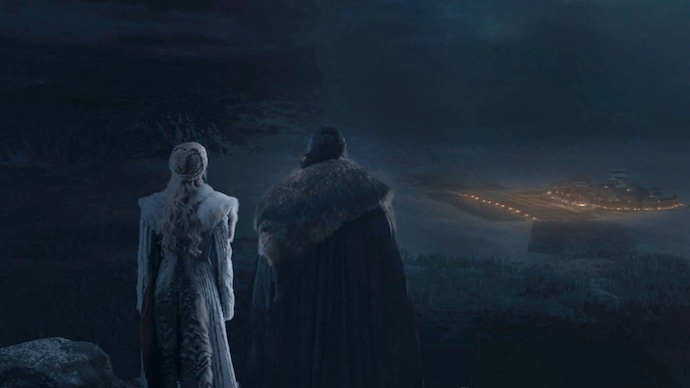
After the final season of Game of Thrones aired, HBO sent a handful of the actors to Comic Con to form a panel that was essentially meant to endure the brunt of fan backlash over the season.
As comedian Seth Rogen pointed out during the event—his own panel had directly followed the Game of Thrones panel—the fact that David Benioff and D.B. Weiss didn't even show up for their own show said a lot.
David Benioff and D.B. Weiss were fully aware of all the controversy surrounding the show's final season, but they didn't care to answer any questions about it, nor did they want to interact with fans, nor did they intend to admit any of the mistakes they'd made.
With season eight now long behind, several of the Game of Thrones cast have made personal statements about the ending, with Kit Harington, Emilia Clarke, Lena Heady, Nathalie Emmanuel, and various others overtly dissatisfied with the conclusion.
However, the most significant critique of the final season came from George R. R. Martin himself, who—since the fiasco—has repeatedly promised fans that the books will not end in similar fashion.
